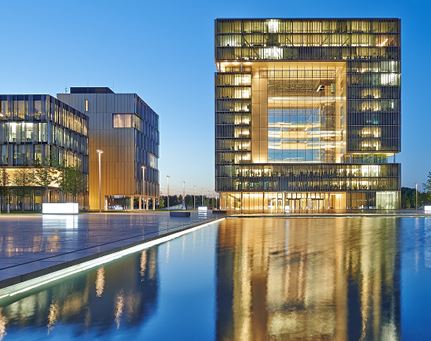Thyssenkrupp reports weaker Q2 results amid challenging market
by David Fleschen

Thyssenkrupp reported a decline in order intake, sales, and earnings in the second quarter of its 2024/2025 fiscal year, as the company continues to navigate a challenging market environment. Despite the weaker operational performance, the group posted a net profit and confirmed its full-year guidance.
Order intake in the quarter was €8.1 billion, down from €8.6 billion a year earlier. Sales also fell to €8.6 billion from €9.1 billion. Adjusted EBIT dropped significantly to €19 million, compared to €184 million in the same period last year. The company attributed the decline to reduced demand, lower prices, and temporary production cuts, particularly within the Steel Europe division.
Free cash flow before mergers and acquisitions was negative €569 million, compared to negative €197 million in the prior-year quarter. The company said the decrease was mainly due to planned tax-related payments in the Marine Systems segment, following an advance payment received in the previous quarter.
Net income rose to €167 million, up from a loss of €72 million a year ago. The improvement was mainly due to proceeds from the sale of Thyssenkrupp Electrical Steel India and a reversal of impairments related to a past investment in the Elevator business. These gains were partially offset by new impairments at Steel Europe, which continues to face high energy costs and market uncertainty.
Thyssenkrupp also confirmed that it had repaid its last outstanding bond in February 2025. The company now reports minimal reliance on bank or capital market debt, maintaining a liquidity position of €5.9 billion.
Chief executive Miguel Lopez said the company is in a transition year. Strategically, it is a year for making decisions. Financially, it is a year of transition. He added that preparations for a standalone solution for the Marine Systems business are progressing, and restructuring plans for Steel Europe are moving forward. He also noted that positive effects from the company's performance improvement program, APEX, are supporting results across all segments. While market conditions remain difficult, he said the company expects more stability and improved performance in the second half of the year.
Segment overview
Steel Europe continued to experience weak demand and underutilized capacity, particularly due to slowdowns in the automotive sector. Sales and earnings declined year-on-year, and production was temporarily reduced for planned conversion work. The division is implementing a long-term strategy focused on low-carbon steel production. An agreement in principle on restructuring was reached in early May with the labor union IG Metall, with formal negotiations ongoing.
In April, Thyssenkrupp Steel began the process of reducing its reliance on Hüttenwerke Krupp Mannesmann by terminating a supply contract, ending its obligation to purchase around 2.5 million tonnes of steel per year by the end of 2032. The company says it continues to pursue the option of selling its stake in HKM.
The Automotive Technology division remained under pressure. The company launched a global efficiency program aimed at cutting costs by over €150 million. Measures include a hiring freeze, job reductions affecting about 1,800 positions, and restructuring of non-core activities. Investment in core areas like electric steering and drivetrain components will continue.
The Decarbon Technologies segment showed stronger performance, with increased sales and earnings. Orders included a major contract in India for a nitric acid plant and multiple sustainability-focused projects in Egypt and France involving carbon capture and sustainable aviation fuel.
Marine Systems maintained stable sales and increased its order intake. Following modernization of the Kiel shipyard, the company is preparing the Wismar site for expanded production. Thyssenkrupp is also preparing to spin off a minority stake in Marine Systems to its shareholders, with plans to list the new entity on the Frankfurt Stock Exchange later this year.
Materials Services faced pressure from weak demand and falling prices but continued to expand its footprint, including the opening of a new metal and plastics service center in New Mexico. The segment is also growing its offering of lower-carbon material solutions and recently signed a supply agreement with Hydnum Steel for decarbonized flat steel.
Outlook
Thyssenkrupp expects the market environment to remain challenging but anticipates a modest improvement in the second half of the fiscal year. The company continues to forecast group sales to be between 3 percent lower to flat compared to the previous year. Adjusted EBIT is expected to be in the range of €600 million to €1 billion. Free cash flow before M&A is projected between €0 and €300 million. Net income is forecast to reach between €100 million and €500 million.
CFO Jens Schulte said the company’s focus remains on improving operational performance to ensure each segment can fund its own investments. He noted that while financial restructuring is progressing, more work is needed—particularly in the steel division.
Equity at the end of the quarter stood at €10.6 billion, up from €10.4 billion at the end of 2024. The equity ratio remained just under 37 percent.

